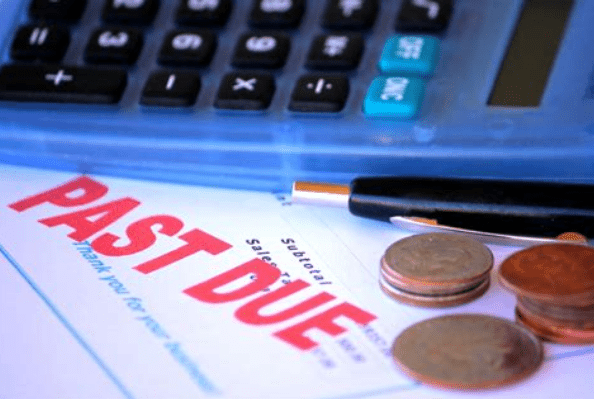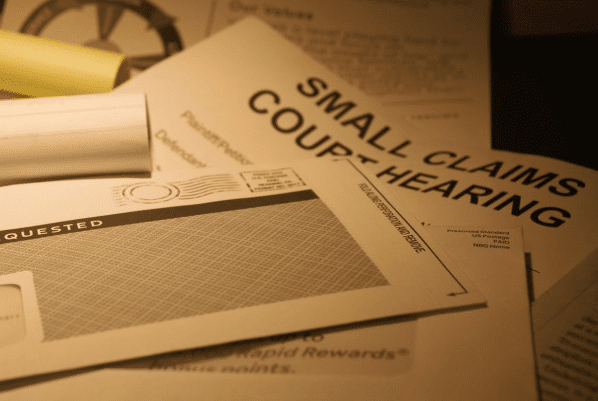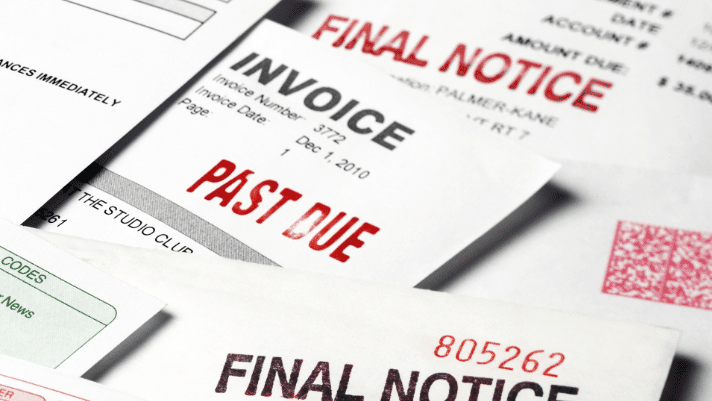In Kansas, you have 21 days to respond to a debt lawsuit. To do so, you’ll need to file an Answer document addressing each claim against you and asserting any affirmative defenses you may have. ZumaZip streamlines this process, helping you draft and file your Answer quickly and efficiently.
Being sued by a creditor or debt collector can be daunting, especially if you’re facing financial challenges. However, ignoring the situation won’t make it go away. It’s crucial to respond, particularly if you disagree with the debt being claimed against you.
In Kansas, if you’ve received a civil chapter 61 warrant, responding to the Summons and Complaint is essential. By doing so, you have the opportunity to present your defenses in court and provide evidence to support your claims.
To respond effectively, you’ll need to file an Answer document with the courts. This document outlines your defenses and addresses the claims made against you. ZumaZip can assist you in preparing and filing this document, ensuring that you meet all state requirements and have the best chance of resolving the matter in your favor.
Table of Contents
- Deadlines
- Steps to Respond
- What is Zumazip?
- Statute of Limitations in Kansas
- Kansas Legal Aid Organizations
- Key Takeaways
- Guides for Other States
Kansas Deadline for Answering a Debt Collection Summons
21 days – You only have 21 days to file an Answer with the court after you’re served the Summons and Complaint, according to Kansas Statutes 60-212 (A)(i), which states:
(A) A defendant must serve an answer:
(i) Within 21 days after being served with the summons and petition.”
Filing your Answer promptly upon receiving the Summons and Complaint is crucial to avoid potential consequences. Missing the deadline could result in the court ruling against you by default and granting judgment to the creditor.
It’s important to note that you must file your Answer with the courts and provide a copy to the plaintiff within the 21-day deadline. This means allowing enough time for filing or mailing and addressing any potential complications.
If time is running out and you haven’t taken action yet, ZumaZip offers a convenient solution. You can quickly and easily develop your Answer and file it from the comfort of your home or office, ensuring you meet the deadline and protect your rights.
Kansas Answer to Summons Forms
ZumaZip simplifies the process of responding to a Summons in Kansas. Our platform takes your input from any smart device and formats it to match the Kansas Answer form, ensuring accuracy and compliance. We can even handle the filing or mailing for you.
Alternatively, you can access Kansas’s general Answer form for civil lawsuits, including debt collection cases, directly from the Kansas courts website. This form guides you through responding to the allegations in the Complaint and asserting your affirmative defenses.
The Kansas state Answer form includes sections for your identifying and contact information, attorney details if applicable, case particulars, and filing date. It’s essential to complete all required fields accurately to ensure your response is valid and effective.
Answer Filing Fees for Kansas
Kansas does not charge fees to file your Answer with the court, as long as it only contains your reasons for denying the claim, as well as your affirmative defenses. However, if you want to file a Defendant’s Claim, or counterclaim, you will have to pay the same filing fees as the petitioner.
Those counterclaim filing fees are:
- $47.50 for claims up to $500
- $67.50 for claims up to $4,000
You only need to include a filing fee if you are filing a Counterclaim with your Answer. Note that in the state of Kansas these are two separate forms, although they can both be accessed from the same site, and ZumaZip can assist you with either.
Steps to Respond to a Debt Collection Case in Kansas
When you get a Summons and Complaint from a debt collector, it can be very tempting to just toss it aside and forget about it, especially if you know you don’t have the means to pay the debt. This is a huge mistake.
If you fail to respond to a debt collection case in Kansas, the judge will grant a default judgment to the plaintiff upon request. This means that you would have to pay the debt anyway, without a chance to defend yourself. It also means that your wages could be garnished, and you would have no control over whether or not you could actually afford it.
When you file an Answer with the courts, it gives you a chance to explain why you think you don’t owe the money. This also gives you a chance to be in court and defend yourself and the reasons you didn’t pay the debt. To respond to your debt lawsuit in Kansas, follow these three steps:
- Address each claim against you.
- Assert affirmative defenses
- File the Answer with the court and serve the plaintiff
Keep reading for a detailed breakdown of each of these steps.
ZumaZip streamlines the process of locating and formatting the required identifying information for your Answer document in Kansas. We help you extract this information from the debt Complaint and Summons documents and ensure that it is properly formatted in your Answer.
Now, let’s dive into the steps to respond to a debt lawsuit in Kansas with confidence.
1. Address each claim against you
The first sectoin of your Answer should focus on responding to each claim against you. These claims are listed in the Complain documents you received when you were notified of the lawsuit. The claims are usually presented in a numbered list, and you should respond by paragraph number in your Answer.
ZumaZip makes it easy to respond.
In your Answer, you can agree or disagree with the individual claims being made by the plaintiff. You should answer each complaint with a simple “I agree,” “I disagree,” or “I don’t know.” For anything that you are questioning or denying, the plaintiff will have to provide evidence as to why you are wrong in order to make their case.
Note that most attorneys recommend denying as many claims as possible, because when you do, the plaintiff is forced to prove each them.
2. Assert affirmative defenses
The third section of your Answer will be where you list your affirmative defenses. Affirmative defenses are facts about the case or the law that require the plaintiff to lose the case. These must be facts that you can back up with evidence.
It is important that you do not just copy and paste affirmative defenses from sources on the internet. You should develop your own affirmative defenses that are relative to your case and the actual reasons you are denying the creditor’s claim. The judge or the plaintiff’s attorney is likely to ask you to testify as to the reasons you chose a particular affirmative defense, so be ready with your explanations.
There are a few things that you never want to use as an affirmative defense. Some of these include:
- Not being able to pay the debt due to financial hardship. This is not an acceptable affirmative defense, because although it is the reason you haven’t paid the debt, it is not actually a defense against owing it.
- Claiming injury by the creditor is not an affirmative defense to the debt, as the debt could be legally owed even though the plaintiff committed some error. Any injury that you claim against the plaintiff must be filed as a Defendant’s Claim with the appropriate Kansas court, accompanied by the appropriate filing fee.
That said, there are any number of affirmative defenses that might apply to your case. Here are some of the most common:
- The plaintiff is not the original creditor and there is no chain of custody or paper trail to prove that the debt collector has a legal right to collect the debt.
- The statute of limitations on filing a lawsuit to collect the debt has expired.
- There was no exchange of money or goods, which can sometimes void a contract.
- The plaintiff is a debt collector who purchased the debt, but the original creditor accepted funds for the debt, in part or in full, from a third party on your behalf, such as with some debt relief programs.
- The principal is accurate, but the interest and fees charged by the debt collector are unethical or exceed those allowed by law.
- The Plaintiff is not entitled to reimbursement of legal fees incurred in the case because the original contract did not allow for such.
- You were the victim of identity theft and did not agree to the debt.
- There are other defendants that should be listed on the claim that should owe all or part of the debt.
ZumaZip makes it easy to make the right defenses.
Your affirmative defenses will vary depending on your case, what goods or services were exchanged, whether or not you had a written contract, and what exactly the debt collector includes in the Complaint. Make sure that you tailor your affirmative defenses to specifically apply to your situation.
3. File the Answer with the court and serve the plaintiff
The final section of your Answer document will be your Certificate of Service, which is a statement declaring that you mailed a copy of the Answer to the plaintiff or their attorney.
When your answer is complete, it must be filed with the court clerk’s office, either by certified mail or in person. It can be a good idea to file your Answer in person at the court’s offices, if you are able. This will ensure that the Answer is filed before the end of the 21 day deadline.
You will also have to mail a copy of the Answer to the plaintiff or their attorney. This copy should be mailed using certified or express mail. This is because with these two types of mail the recipient must sign, and you receive the return slip proving that they received the document.
If you are nearing the end of the 21 day deadline and need to act quickly, ZumaZip can file your Answer for you, including mailing overnight to the court and plaintiff to ensure that you meet the deadline.
Why ZumaZip?
ZumaZip is a valuable tool for anyone dealing with debt collectors or facing a debt lawsuit. With ZumaZip, you can efficiently respond to a debt lawsuit, send letters to collectors, and even negotiate settlements—all from one convenient platform.
Our Answer service simplifies the process of responding to a debt lawsuit by guiding you through each step with easy-to-follow questions. Once you’ve completed your Answer document, our team will review it to ensure accuracy and compliance with legal requirements. Then, we’ll handle the filing process for you, saving you time and stress.
With ZumaZip, you can navigate the complexities of debt collection with confidence and peace of mind.
The statute of limitations on debt can protect you in Kansas
Creditors and debt collectors must follow certain laws and regulations, both federally and on a state and local level. One of these laws is the statute of limitations on debt collection in Kansas. There is a specific window for creditors and collectors to sue for the debt in question. If they don’t meet their deadline, they cannot collect on the debt.
The Kansas statute of limitations on debt resulting from a credit card, medical, student loan, auto loan, mortgage, personal loan is five years. Likewise, the statute of limitations on judgments is five years in Kansas.
In other words, creditors and debt collectors only have five years to sue you for a debt in Kansas, typically starting from your last action on an account. So, if you haven’t made a payment on your credit card debt for more than five years, you could use this as an affirmative defense in your case to get it dismissed.
The table below further outlines the statute of limitations on different types of debt in Kansas.
| Debt Type | Deadline In Years |
|---|---|
| Oral Contracts | 3 years |
| Credit Card | 5 years |
| Medical | 5 years |
| Student Loan | 5 years |
| Auto Loan | 5 years |
| Mortgage | 5 years |
| Personal Loan | 5 years |
| Judgment | 5 years |
| Kan. Stat. § 60-511, 512, and 2403 |
The statute of limitations on debt in Kansas begins on the day that the account was charged off, closed, or you stopped paying for the products or services. For debt collection agencies, the statute of limitations begins when the original creditor closes the account or sells the debt.
If a debt collector or creditor tries to sue you for a debt that is older than these deadlines, they are not usually able to receive a judgment for the debt. However, in some cases a judge may order you to pay a debt, even if it goes past the normal statute of limitations, based on evidence provided.
Kansas Legal Aid Organizations
Every state has at least one government-funded organization that provides free legal services to people. Kansas has one. You can contact this organization to ask questions about the legal process and how to handle a case.
Kansas Legal Services, Inc.
712 South Kansas Avenue, Suite 200
Topeka, Kansas 66603
(800) 723-6953
https://www.kansaslegalservices.org
Key Takeaways
If you haven’t gotten the idea by now, you should never ignore a debt summons. If you are sued by a creditor or debt collector, you should make sure that you are aware of your rights and responsibilities in the case.
With most debt collections, the matter is usually fairly straight forward. You either owe the debt or don’t, and have the evidence to back up your claims. When you are clear about the facts of the case, handling the matter on your own can usually be accomplished successfully.
One of the most important parts of defending yourself when you are being sued is your Answer. It is important that you file this document according to the rules and regulations in Kansas, according to law. If you do not file this document or if it is done incorrectly, you could end up with a default judgment against you.
If you want to make sure that your Answer is not rejected by the courts due to formatting or the information it contains, ZumaZip is here to help. By filling in some blanks and answering some questions, we can help you get your Answer document created, formatted, and filed.
Remember, the key steps to responding to a debt collection Summons and Complaint are:
- Respond to each claim made by the plaintiff by paragraph number
- Formulate your affirmative defenses
- File your Answer with the court and mail to the plaintiff or their attorney
What is ZumaZip?
ZumaZip is a convenient solution designed to streamline your response to a debt collection lawsuit. Here’s a breakdown of what you can expect when you use ZumaZip:
Firstly, you’ll access our user-friendly web application, which guides you through the process step by step. You’ll be prompted to answer a series of questions related to your specific situation. Once you’ve completed the questionnaire, you have the option to either print out the finalized forms and mail them to the appropriate courts yourself, or you can opt to utilize ZumaZip’s services to file them on your behalf. Additionally, if you choose this option, an attorney will review your document for added peace of mind.
If you’re seeking guidance on how to effectively respond to a debt collection lawsuit, ZumaZip can provide the assistance you need. Feel free to explore our FAQs for more information on what ZumaZip has to offer.
What if I haven’t been sued yet?
If you’ve only received a collections notice, but not a lawsuit, the best way to respond is with a Debt Validation Letter. When a debt collector contacts you in any way, whether it’s by phone or mail, you can respond by formally requesting a debt validation with a Debt Validation Letter . This letter notifies the collector that you dispute the debt and forces them to provide proof you owe the debt. They can’t call you or continue collecting until they provide validation of the debt. This flowchart shows how you can use a Debt Validation Letter to win.
Get started with a Debt Validation Letter here.
How to Answer a Summons for debt collection in all 50 states
Here’s a list of guides on how to respond to a debt collection lawsuit in each state:
- Alabama
- Alaska
- Arizona
- Arkansas
- California
- Colorado
- Connecticut
- Delaware
- Florida
- Georgia
- Hawaii
- Idaho
- Illinois
- Indiana
- Iowa
- Kansas
- Kentucky
- Louisiana
- Maine
- Maryland
- Massachusetts
- Michigan
- Minnesota
- Mississippi
- Missouri
- Montana
- Nebraska
- Nevada
- New Hampshire
- New Jersey
- New Mexico
- New York
- North Carolina
- North Dakota
- Ohio
- Oklahoma
- Oregon
- Pennsylvania
- Rhode Island
- South Carolina
- South Dakota
- Tennessee
- Texas
- Utah
- Vermont; Vermont (Small Claims court)
- Virginia
- Washington
- West Virginia
- Wisconsin
- Wyoming
Guides on how to beat every debt collector
Hey there! Facing off against a debt collector can feel like a daunting challenge, but fear not! We’re here to help you navigate through it all with our handy guides designed to assist you in beating every debt collector you encounter. Whether you’re facing a new lawsuit or dealing with a persistent collector, we’ve got your back. Stay positive, stay informed, and let’s tackle this together!
- Absolute Resolutions Investments LLC
- Accredited Collection Services
- Alliance One
- Amcol Clmbia
- American Recovery Service
- Asset Acceptance LLC
- Asset Recovery Solutions
- Associated Credit Services
- Autovest LLC
- Cach LLC
- Cavalry SPV I LLC
- Cerastes LLC
- Colinfobur
- Covington Credit
- Crown Asset Management
- CTC Debt Collector
- Cypress Financial Recoveries
- Delanor Kemper & Associates
- Eagle Loan of Ohio
- Educap
- Estate Information Services
- FIA Card Services
- Forster & Garbus
- Freshview Solutions
- Fulton Friedman & Gullace LLP
- Harvest Credit Management
- Howard Lee Schiff
- Hudson & Keyse LLC
- Integras Capital Recovery LLC
- Javitch Block
- Jefferson Capital Systems LLC
- LVNV Funding
- Mannbracken
- Mariner Finance
- Medicredit
- Michael J Adams PC
- Michael J Scott
- Midland Funding LLC
- Mullooly, Jeffrey, Rooney & Flynn
- Mountain Land Collections
- MRS Associates
- National Collegiate Trust
- Nationstar Foreclosure
- Northstar Capital Acquisition
- NCEP LLC
- NRC Collection Agency
- OneMain Financial
- Palisades Collection LLC
- Pallida LLC
- Paragon Revenue Group
- Pinnacle Collections Agency
- PMAB LLC
- Portfolio Recovery Associates
- Provest Law
- PYOD LLC
- Reunion Student Loan Finance Corporation
- Revenue Group
- Regents and Associates
- RSIEH
- Salander Enterprises LLC
- Second Round Sub LLC
- Security Credit Services
- Sherman Financial Group
- Suttell and Hammer
- T-Mobile
- Transworld Systems
- Tulsa Teachers Credit Union
- UCB Collection
- Velo Law Office
- Velocity Investments
- Waypoint Resource Group
- Weinberg and Associates
- Wolpoff & Abramson
Settle your medical debt
Having a health challenge is stressful, but dealing medical debt on top of it is overwhelming. Here are some resources on how to manage medical debt.
- Am I Responsible for My Spouse’s Medical Debt?
- Do I Need a Lawyer for Medical Bills?
- Do I Need a Lawyer to Fight Medical Bill Debt?
- Does Bankruptcy Clear Medical Debt?
- How Much Do Collection Agencies Pay for Medical Debt?
- How to Find Medical Debt Forgiveness Programs
- Is There a Statute of Limitations on Medical Bills?
- Medical Debt Statute of Limitations by State
- Summoned to Court for Medical Bills — What Do I Do?
- Summoned to Court for Medical Bills? What to Do Next
Stop calls from Debt Collectors
Do you keep getting calls from an unknown number, only to realize that it’s a debt collector on the other line? If you’ve been called by any of the following numbers, chances are you have collectors coming after you, and we’ll tell you how to stop them.



































